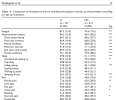ME/CFS arises when a genetically primed bottleneck in endosomal/ER trafficking and ER‑phagy (RABGAP1L, ARFGEF2, CCPG1) meets oxidative–lipid stress on mitochondria and endothelium (FBXL4, PRDX6, PEBP1, HFE), tipping immune checkpoints toward non‑resolving activation (BTN2A2, TNFSF4/RC3H1, TRIM38) and culminates in microvascular hypoperfusion (SERPINC1, PTGIS) and dysautonomia (CA10, PEBP1), with epigenetic locking (SUDS3) that sustains the state after diverse triggers (viral or toxicants such as organophosphates).
How the GWAS hits define the core failure points
- Vesicle and receptor trafficking bottleneck
- RABGAP1L and ARFGEF2 (BIG2): control Rab/ARF-dependent endosomal and Golgi trafficking. A deficit here impairs antigen processing, cytokine receptor recycling, and GPCR trafficking (including adrenergic/muscarinic receptors), prolonging or distorting signaling and antigen persistence.
- CCPG1: an ER‑phagy receptor that clears stressed ER. Lower ER‑phagy capacity makes secretory/immune and barrier cells intolerant to acute ER stress (infection, toxins), amplifying the unfolded protein response and DAMP signaling.
- Energetics and oxidative resilience
- FBXL4: maintains mitochondrial DNA and biogenesis; even partial impairment lowers ATP reserve and raises ROS under stress.
- Immune co-regulation and mucosal priming
- BTN2A2: butyrophilin family co-regulatory molecule shaping T cell responses (including γδ T cells); variants can skew immune tone toward either overactivation or poor resolution.
- OLFM4 (Tier 2 but a GWAS hit): neutrophil/intestinal stem cell protein modulating innate responses; links mucosal barrier events to systemic inflammation.
- Neuro–autonomic vulnerability
- CA10: brain/synaptic carbonic anhydrase–like protein (noncatalytic) that modulates synaptic architecture and excitability; variants can destabilize central autonomic networks and sensory processing.
- Transcriptional set-point
- SUDS3: SIN3–HDAC scaffold; shifts gene-expression programs (metabolic and immune), facilitating a chronic “stuck” state.
How Tier 1 genes reinforce these modules
- Immune activation and off-switches
- TNFSF4 (OX40L) and RC3H1 (Roquin-1): coherent pair—RC3H1 normally destabilizes OX40/ICOS mRNAs; variants combined with higher OX40L tilt toward sustained T cell help, autoimmunity, and poor resolution.
- TRIM38, ZNFX1: tune innate RNA-sensing and type I IFN—risk of a chronic, smoldering antiviral program even after acute infection clears.
- BTN3A3 (with BTN2A2): further modulates γδ T cell circuitry.
- Trafficking, degradation, and stress responses
- KLHL20, CSE1L, STAU1, DDX27: ubiquitin/trafficking, RNA handling, ribosome biogenesis—together lower the ceiling for rapid recovery from cellular stress.
- Redox–lipid injury and ferroptosis susceptibility
- PRDX6 (peroxidase/iPLA2), PEBP1 (RKIP; also scaffolds 15‑LOX to peroxidize phosphatidylethanolamine), HFE (iron handling): converge on lipid peroxidation control and ferroptosis threshold.
- B4GALT5: glycosphingolipid biosynthesis that tunes membrane microdomains in platelets/endothelium and immune cells.
- Microvascular tone and thromboregulation
- SERPINC1 (antithrombin) and PTGIS (prostacyclin synthase): prothrombotic/vasoconstrictive tilt → microclots and impaired perfusion.
Tier 2 proximity-only genes (lower confidence, but consistent with the model)
- FBXL4 (also a top GWAS hit, so still high importance), OLFM4, CCPG1: while they lacked eQTL colocalization in this analysis, their known functions fit the core axes above (mitochondria, innate/mucosal immunity, ER‑phagy).

